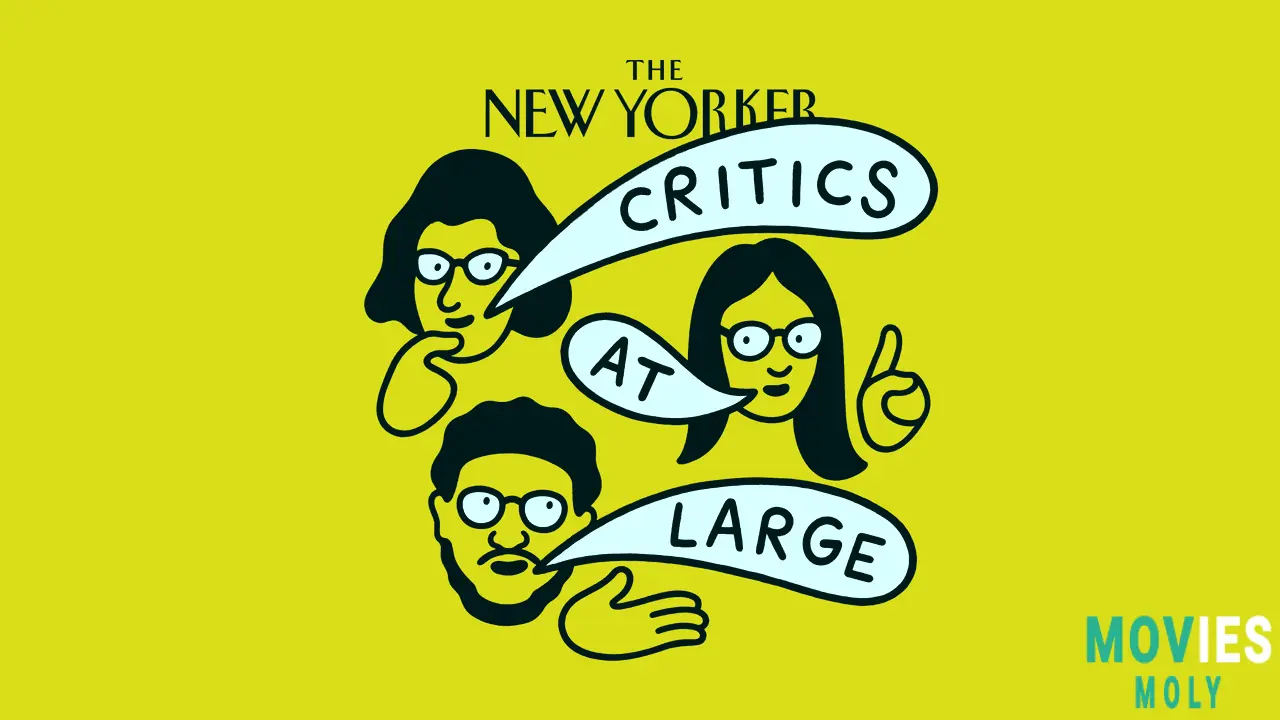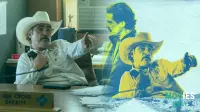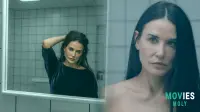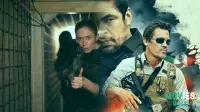Ari Aster's distinctive vision for movies has always pushed the limits of what people expect. Aster has made a name for himself in modern cinema by making movies that are very different from one other. His early work dealt with disturbing family relationships, while his most recent picture, Eddington, is a wide-ranging satire. His movies generally mix several genres, making viewers face hard facts and go deeper into human psyche. Now, with Eddington, which stars Joaquin Phoenix, Aster makes a movie that directly deals with the problems of modern life. This is his most divisive effort to yet.
Ari Aster's movies have changed with time.Ari Aster's career as a filmmaker started even before his first feature-length films. His short films, which often had dark comedy and disturbing subjects, showed how his style and interests were changing over time.
Herman's Cure-All Tonic (2008), his first recognized work, looked at stressed family relationships, which would become a common theme in his following films. TDF Really Works (2011) was one of his first attempts at dark comedy. Beau (2011) was an early version of his later feature Beau is Afraid, and even in its early form, it showed that he was a master of timing and point of view.
The Strange Thing About The Johnsons (2011), on the other hand, was the first to get a lot of attention. This psychological horror short was about an incestuous connection in a suburban household. It got a lot of people talking because of its controversial subject matter and strong emotional impact. Aster then made Munchausen (2013), a silent film about a woman who goes to great lengths to keep her son from going to college. This showed how well he could tell scary stories just with music and pictures. The Turtle's Head (2014) had a strange and darkly funny take on a detective mystery, while C'est La Vie (2016) had a homeless man ranting passionately, showing Aster's satirical side.
Hereditary: The Beginning of Trauma
Hereditary (2018), Aster's first feature film, rapidly made him a major voice in horror. The movie shows what happens following the death of a family matriarch, showing a family that is weighed down by grief, mental illness, and a dark otherworldly presence. Critics liked how tense it was all the time, how surprising some parts were, and Toni Collette's acting. The film's emotional weight, which came from Aster's own thoughts about sorrow, added to his reputation for making horror that is very personal and hard on the mind.
Folk Horror and Breakups in Midsommar
Aster made Midsommar (2019) after Hereditary. It's a folk horror movie set against the bright, beautiful setting of a Swedish midsummer festival. The movie is about a group of American students who get involved with a pagan cult. Midsommar was different from Aster's other work in terms of how it looked, but it still dealt with trauma, unhealthy relationships, and the loss of human connection, albeit from a different cultural point of view.
A Surreal Odyssey: Beau is Afraid
With Beau is Afraid (2023), Aster moved away from traditional horror and made a strange journey full of fear. Joaquin Phoenix plays a neurotic middle-aged man on a strange trip to see his mother in the movie. Originally called Disappointment Blvd., this project showed again that Aster is eager to try new things with story and genre, stretching the limits of what people expect from his work.
"Ari Aster's Movies make us face uncomfortable truths." His distinct vision is changing the way movies are made today.
Ari Aster's Style Traits
You can tell right away that Ari Aster is directing by the slow tempo, careful framing, and constant feeling of dread. He typically uses lengthy takes, which make scenes feel more real and raise the suspense. His movies are known for their psychological depth, as they deal with familial trauma, sorrow, and mental pain with brutal honesty. Aster is good at mixing genres. He often calls his horror movies "family tragedies that turned into nightmares" or "domestic melodramas."
He gets ideas for his movies from a lot of different filmmakers. Aster has said that Nicholas Roeg's Don't Look Now had a big impact on him, especially because it did such a good job of showing sadness through tone and montage. He has also said that he likes how Roman Polanski uses complicated blocking and camera work in movies like Repulsion and Rosemary's Baby. He also likes how Japanese ghost stories like Ugetsu and Empire of Passion have a lot of emotional depth. Aster's artistic tastes have also been greatly influenced by Mike Leigh's work with actors and Todd Solondz's darkly funny Happiness. He also gets ideas from Roy Andersson's work and the way Kieslowski used light in Red.
Ari Aster and Joaquin Phoenix Work Together Creatively
The partnership between Ari Aster and Joaquin Phoenix has swiftly become one of the most interesting in the history of film. Because they have the same artistic vision, they can do performances that push the limits and show complex personalities in a very real way. In Beau is Afraid, Phoenix gave a performance that grounded Aster's strange story. This was the first time this combination was witnessed.
Their work on Eddington is another example of how different they are from each other. Aster has said that Phoenix doesn't like being taught what to do explicitly, so he typically comes up with his own ways to instruct the actor. For example, when Aster was getting Phoenix ready for his part as Sheriff Joe Cross, he had Phoenix meet a number of people, knowing that Phoenix would be drawn to the one Aster had in mind. This made Phoenix think that he had made the choice. In the same way, during stunts, Phoenix would first say no, so Aster would make the stunt double ready, but Phoenix would always change his mind and complete the stunt himself. This "war with Ari and surrendering," as actress Deirdre O'Connell put it, adds to the powerful and tragic performances in their movies.
"Joaquin Phoenix and Ari Aster always go above and beyond in their work together, giving performances that will stay with you."
What "Eddington" is About: Themes, Cast, and Reception
Aster's Eddington is a big change for the company. It's a modern western set in a made-up New Mexico hamlet in May 2020. The movie explicitly deals with the differences and fears in society that arose in the early days of the pandemic, especially the cultural wars in the United States.
Choosing actors and working together
Eddington has a great cast, including Joaquin Phoenix as Sheriff Joe Cross. Pedro Pascal plays Mayor Ted Garcia, Joe's political enemy who tries to have people wear masks and stay away from each other. Deirdre O'Connell plays Joe's mother-in-law, who is obsessed with QAnon, and Emma Stone plays his wife, Louise. Austin Butler is also a prophet on YouTube. Luke Grimes plays a deputy sheriff, Michael Ward plays a Black police officer, and Amélie Hoeferle plays a teenage activist in the movie.
The "Eddington" Controversy and Big Divide
When it first showed at the Cannes Film Festival, Eddington was soon called the most polarizing movie of the year. Aster wanted to make a movie on polarization, thus this separation was partly on purpose. The story is about a conservative sheriff who is against masks and a liberal mayor who is for them. It turns into a deadly vigilante fight. People have had different views to the film's honest look of the tensions, lies, and the Black Lives Matter movement that came up during the outbreak, as well as its trademark over-the-top violence and dark comedy. Some critics liked how "brazenly provocative" it was and that it was "the first truly modern Western." Others thought it was "a slog" or "smug." Its very American themes, especially the subtlety of its social critique, may not have the same effect on people from other countries as they do on people from the United States.
"'Eddington' isn't simply a movie; it's a mirror that shows how divided our society is. Aster's skill is in making us feel uncomfortable.
Filming Locations and Behind-the-Scenes Information
Aster, who is from New Mexico, chose Truth or Consequences, New Mexico, as the main filming location for Eddington. The town's peaceful, empty feel organically added to the film's creepy mood, making it look like the streets were closed for filming when they were just quiet. Aster did a lot of research to get a good picture of the political climate in New Mexico. He drove around the state and talked to local mayors, police chiefs, and sheriffs. He wanted a "omni-partisan" approach, so he didn't let his own views get in the way of the film. Instead, he tried to understand all the characters, no matter what their point of view was.
Aster's Dive into Social Commentary: Beyond Horror
Aster is known for his horror movies, but Eddington is showing that he is becoming more interested in social commentary. He calls it "a western, but the guns are phones," which shows how characters use cameras and social media to attack and get back at each other. The movie is one of the first big-budget films to talk directly about the epidemic and the political conflicts it produced. It sees COVID-19 as a "inflection point" where common ground and a shared reality started to break down.
Eddington doesn't hold back when it comes to the cultural difference. He attacks both Republican conspiracy theories and what Aster sees as liberal bubbles. The movie looks at how incessant messaging and fear can lead individuals to violence and make them "unreachable to each other." Aster wants the movie to be a "bridge" that makes people think about the "insanity of that time" and if they want to keep going down the same path as society is now.
Recurring Themes and Symbols
Aster regularly employs the same themes and symbols in different movies to make his stories more interesting. Family problems and trauma are at the heart of practically all of his works. For example, The Strange Thing About The Johnsons has incestuous themes, Hereditary has generational curses, and Beau is Afraid has a mother-son connection. A lot of the time, his movies show folks who are dealing with too much tension and a sense of reality that is falling apart. He uses striking, often disturbing images, as the creepy dolls in Hereditary and the colorful but creepy folk art in Midsommar. In Eddington, the continual presence of phones and screens represents the widespread effects of social media and false information, which convert everyday things into tools of conflict.
"From the scary depths of 'Hereditary' to the funny brilliance of 'Eddington,' Ari Aster keeps changing the rules of the game."
Ari Aster's career has been greatly helped by the independent studio A24, which has made his feature films and given him a lot of creative freedom. This cooperation has helped Aster fulfill his unique artistic visions, even when they are hard or unusual. This has made him a well-known personality in what some people call "elevated horror" and beyond.
"The relationship between Ari Aster and Joaquin Phoenix is becoming one of the most interesting in movies." Be ready for anything.
Ari Aster is still a director who makes people think and talk. With Eddington, he has made a movie that is both topical and relevant, and that also makes people think about the state of their own society. His ability to mix dark comedy, psychological depth, and social commentary makes him a director who always pushes the limits of what movies can do.





